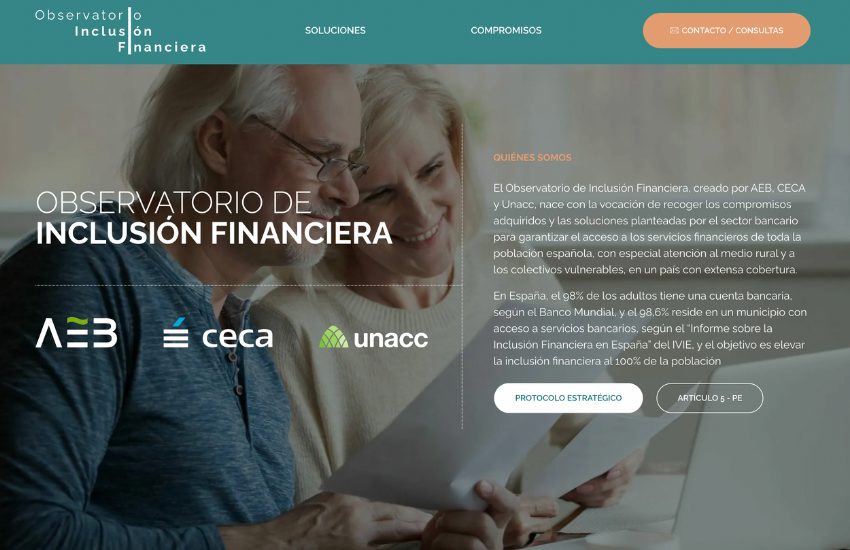The associations AEB, CECA and Unacc activate the website of the Financial Inclusion Observatory, which sets forth the measures adopted to guarantee access to banking services for the entire population
This new space brings together the actions implemented in accordance with the Strategic Protocol to Strengthen the Social and Sustainable Commitment of the Banking Sector
The Spanish Banking Association (AEB), CECA and the National Union of Credit Cooperatives (Unacc) presented today the website of the Financial Inclusion Observatory, which reflects the measures and agreements reached by the banking sector to raise the number of access points to financial services in Spain from the current 98% to 100% of the population.
With this new space, the banking sector reaffirms its commitment to guaranteeing financial inclusion, as set forth in point 5 of the Strategic Protocol to Strengthen the Social and Sustainable Commitment of the Banking Sector and its additions, with special emphasis on rural areas and groups that require more personalised attention.
Spain has one of the densest banking networks in the European Union: it is the country with the third-highest number of access points to financial services per capita. Some 98% of adults have a bank account and 98.6% reside in a municipality with access to banking services. Against this background, the banking sector is deploying actions to promote access to banking services for 100% of the population, through a three-pronged framework of action: inclusion in rural areas, inclusion of groups such as the elderly and the disabled, and inclusion through training.
To improve customer service in rural areas, the banking associations have recently agreed on a roadmap with measures targeting inhabitants of municipalities that currently have no, or even never had, a face-to-face access point, or which only have one. Furthermore, a collaboration agreement has been signed with the Spanish Postal Service (Correos) to facilitate access to cash in rural areas through the Correos Cash service.
In addition to this, there is a decalogue of measures geared towards improving customer service for the elderly or the disabled, with actions such as extending office hours, preferential treatment in face-to-face or telephone customer service, adapting access channels such as websites or apps, or training measures for both employees and customers, depending on their interests.
With regard to training, the banking sector devotes considerable efforts to promoting the acquisition of financial literacy and digital skills, which have been complemented with the launch of the "Financial and Digital Classroom" platform, promoted by AEB, CECA and Unacc; work recognised with the 2022 "Finanzas para Todos" (Finance for All) award granted by the Bank of Spain, the CNMV and the Ministry of Economic Affairs and Digital Transformation.
The Financial Inclusion Observatory website also provides information on the monitoring and updating of these measures, which are part of the commitments undertaken by the sector, and reflects the permanent nature and priority given to this financial inclusion objective.








